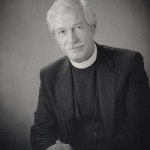Deprecated: trim(): Passing null to parameter #1 ($string) of type string is deprecated in
/home/aoiusa/public_html/wp-content/plugins/sexybookmarks/public.php on line
388
Deprecated: trim(): Passing null to parameter #1 ($string) of type string is deprecated in
/home/aoiusa/public_html/wp-content/plugins/sexybookmarks/public.php on line
394
Deprecated: trim(): Passing null to parameter #1 ($string) of type string is deprecated in
/home/aoiusa/public_html/wp-content/plugins/sexybookmarks/public.php on line
400
In 1981, the Very Rev. Leonidas C. Contos delivered a lecture titled “2001: The Church in Crisis.” Fr. Contos said the title was chosen because the American Orthodox Church had been in a crisis “for a very long time” and he wanted to fix a reference point for speculations on what the Church’s situation might look like at some future date. That date has come and gone, but Fr. Contos’ reflections are now, just as they were nearly three decades ago, worthy of our consideration. Few have written so honestly and so intelligently about the problems of American Orthodoxy. Fr. Contos questioned the use of the term “diaspora” and said this:
For so long as we are conditioned, in our polity and in our cultural life, by the diaspora complex, however subconsciously, we will be inhibited in the fullest realization of our ‘church-hood.’ More importantly, so long as we are perceived from without as a diaspora—a branch, an offshoot, a transplant, an emigration—by the Mother Church (and, if the truth be told, by the Mother Country), our maturity will never be acknowledged; our uniquely formed destiny in the West, never adequately comprehended; our freedom to shape our future as the Orthodox Church in this hemisphere, never fully realized.
On the Ecumenical Patriarchate, it was Fr. Contos’ opinion that “there is one fate that could be worse than the expulsion of the Patriarchate from Turkish soil. And that is that it should remain there … ”

Fr. Contos
Fr. Contos (1920-1995) was the president of Hellenic College/Holy Cross Greek Orthodox School of Theology from 1966-1971. Later, he was a professor of Orthodox studies at the Patriarch Athenagoras Orthodox Institute in Berkeley, Calif. The late Archbishop Iakovos appointed Fr. Contos to be the official translator of the Greek Orthodox Archdiocese where he was responsible for providing new liturgical texts.
At his funeral, the Rev. Spencer Kezios eulogized Fr. Contos as “a scholar, a humorist, an intellectual, a gentleman, an artist, an author, an orator, a musician, a theologian, a husband, a father and a grandfather. He was a gifted man. Lesser men were intimidated by the enormity of his talent. Honest men were inspired by it.”
I am reproducing here two passages from his talk, one of the Patriarch Athenagoras Memorial Lectures, which focus on what Fr. Contos calls the “crisis of canonical integrity” and the resulting identity crisis that has afflicted Orthodox Christians in this country for as long as anyone can remember.
The following text is from “2001: The Church in Crisis” by Rev. Leonidas C. Contos:
If it is incumbent on the Church to recover the mind of the Fathers with respect to tradition and with respect to the theological vocation, it is positively the mandate of history, where history has now brought us, to achieve this in the crucial matter of her canonical integrity. If you will consider this word, which is very carefully employed, you will appreciate that it has little to do with honesty—through surely honesty with yourselves is always very much at issue—but rather it has to do with soundness, wholeness. And it is here that we seem to find the greatest difficulty in coming to terms with the past.
That past is dominated by the fact that on the heels of its worst persecution, the Church suddenly came under the protection and favor of the very state that had so long tried to stamp it out as a pernicious heresy. With imperial aid what had been a minority sect succeeded in suppressing all its powerful rivals. (It had been suggested that otherwise it is not inconceivable that Mithra might today have churches on Broadway.) But the new imperial religion, which Christianity soon became, paid such a price for its victory that historians have described Constantine’s contribution as a ‘fatal gift.’ Certainly, its consequences were momentous, as have been the consequences of the transfer of the capital from Rome to Byzantium.
The main point, however, is not that the union of Church and empire created a lasting confusion of the things that are Caesar’s and the things that are God’s. What was of more far-reaching significance was that the absolute condition for the surrender of the Church’s independence to the empire was acceptance by the empire of the Church’s faith.
That unique and universal ‘theocracy,’ whatever its virtues or its faults—and it possessed many of both—perished in 1453. What did survive, under the Ottoman concept of the religion-nation, was the imperial tradition. Under the Patriarch of Constantinople it took the form of an ecclesiastical ‘imperium,’ so to speak, with its ecclesiological presuppositions thrown into a chaos from which Orthodoxy has yet to emerge and which, it would almost seem, it is loath to acknowledge. Continue reading →
